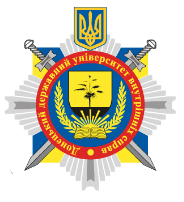FEATURES OF VIRTUAL GOODS IN THE STATICS AND DYNAMICS OF CIVIL LEGAL RELATIONS
DOI:
https://doi.org/10.32782/2523-4269-2022-81-4-2-35-39Keywords:
virtual property, virtual goods, cryptocurrency, virtual property.Abstract
With the further development of digital technologies, their introduction into public life will deepen. The process of implementing digital technologies in law is currently underway. Depending on the subject and method of its legal regulation, the law includes the specified social relations in the sphere of the corresponding legal regulation. Due to the novelty of relationships with digital objects, their wired regulation is under development. Currently, the scientific problem is the classification of digital objects. The legal nature of these objects needs to be clarified. It was found that there are the following approaches to the study of digital technologies: technocratic, complex law, special law. The special legal approach has the following directions: public law, private law and research of digital technologies as an object of intellectual property law. In private law, it is more correct to use the concept of "virtual good". The concept of absolute rights is studied. The possibility of applying the concept of property rights to the legal regulation of digital technologies has been proved. Features of digital technology ownership have been identified. It is proposed to consider the de facto owner of a digital technology object as a person who has access rights to it. This access is through authentication and verification. That is, entering the login and password of the appropriate user. The application of classifications of contracts in civil law to digital technology objects is analyzed. In particular, for legal purposes: agreements on the transfer of ownership, rights of use, provision of services, performance of works. It has been found that these classifications can be applied to them, taking into account the characteristics of digital technology objects.
References
Ярова К.О. Криптовалюта: визначення правового статусу в Україні. Молодий вчений. 2017. № 10. С. 50–56.
Беляков К.І., Золотар О.О. Суспільно-гуманітарні наукові дослідження в Україні: інформаційний вимір. Енциклопедія соціогуманітарної інформології / за заг. ред. проф. К.І. Бєлякова. Київ : Видавничий дім «Гельветика», 2020. Т. 1. 472 с.
Бортник Н., Єсімов С. Відносини в мережі Інтернет як об’єкт правового регулювання. Вісник Національного університету Львівська політехніка. Серія: Юридичні науки. 2019. № 22. С. 147–153.
Шимон С.І. Майнові права в контексті сучасних концепцій права власності в цивілізації. Часопис Київського університету права. 2012. № 2. С. 192–194.
Кохановська О.В. Цивільно-правова відповідальність суб’єкта інформаційних відносин за умов подальшого розвитку автономних роботів і штучного інтелекту: модернізація цивільно-правової відповідальності. Матвєєвські цивілістичне читання. Матеріали міжн. наук.-практ. конф. (18 жовт. 2019 р.). Київ : КНУ імені Тараса Шевченка. С. 94–98.
Некіт К.Г. Цифрові дані та інформація як об’єкти права власності. Часопис цивілістики. 2021. № 42. С. 38–44.
Саватье Р. Теория обязательств: юридический и экономический очерк. Москва : Прогресс, 1972. 440 с.
Гусь А.В. Правовая природа нематериальных активов. Порівняльно-аналітичне право. 2019. № 5. С. 154–157.
Душаева А.А. Смарт-контракты в юриспруденции. Web of Scholar. 2018. № 6(24). С. 39–43.





